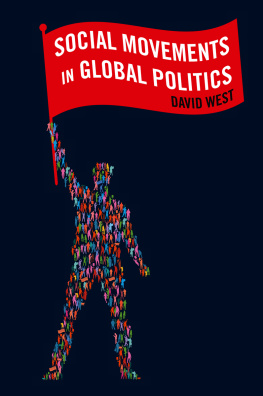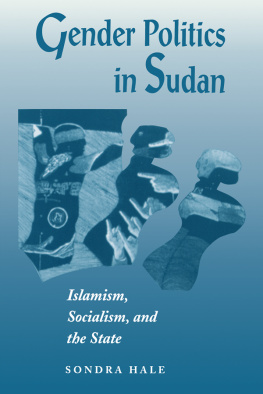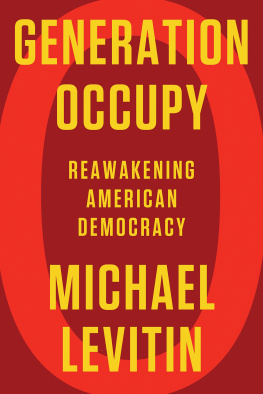
 C u l t u r e , M i n d , a n d S o c i e t yPolitical Sentimentsand Social MovementsThe Person in Politics and CultureEdited by Claudia Straussand Jack R. Friedman Culture, Mind, and Society Series Editor Peter G. Stromberg Department of Anthropology Henry Kendall College of Arts and Sciences University of Tulsa Tulsa, OK, USA The Society for Psychological Anthropologya section of the American Anthropology Associationand Palgrave Macmillan are dedicated to publishing innovative research that illuminates the workings of the human mind within the social, cultural, and political contexts that shape thought, emotion, and experience. As anthropologists seek to bridge gaps between ideation and emotion or agency and structure and as psy chologists, psychiatrists, and medical anthropologists search for ways to engage with cultural meaning and difference, this interdisciplinary terrain is more active than ever. Editorial BoardEileen Anderson-Fye, Department of Anthropology, Case Western Reserve University Jennifer Cole, Committee on Human Development, University of Chicago Linda Garro, Department of Anthropology, University of California, Los Angeles Daniel T. Linger, Department of Anthropology, University of California, Santa Cruz Rebecca Lester, Department of Anthropology, Washington University in St.
C u l t u r e , M i n d , a n d S o c i e t yPolitical Sentimentsand Social MovementsThe Person in Politics and CultureEdited by Claudia Straussand Jack R. Friedman Culture, Mind, and Society Series Editor Peter G. Stromberg Department of Anthropology Henry Kendall College of Arts and Sciences University of Tulsa Tulsa, OK, USA The Society for Psychological Anthropologya section of the American Anthropology Associationand Palgrave Macmillan are dedicated to publishing innovative research that illuminates the workings of the human mind within the social, cultural, and political contexts that shape thought, emotion, and experience. As anthropologists seek to bridge gaps between ideation and emotion or agency and structure and as psy chologists, psychiatrists, and medical anthropologists search for ways to engage with cultural meaning and difference, this interdisciplinary terrain is more active than ever. Editorial BoardEileen Anderson-Fye, Department of Anthropology, Case Western Reserve University Jennifer Cole, Committee on Human Development, University of Chicago Linda Garro, Department of Anthropology, University of California, Los Angeles Daniel T. Linger, Department of Anthropology, University of California, Santa Cruz Rebecca Lester, Department of Anthropology, Washington University in St.
Louis Tanya Luhrmann, Department of Anthropology, Stanford University Catherine Lutz, Department of Anthropology, University of North Carolina, Chapel Hill Peggy Miller, Departments of Psychology and Speech Communication, University of Illinois, Urbana-Champaign Robert Paul, Department of Anthropology, Emory University Antonius C. G. M. Robben, Department of Anthropology, Utrecht University, Netherlands Bradd Shore, Department of Anthropology, Emory University Jason Throop, Department of Anthropology, University of California, Los Angeles Carol Worthman, Department of Anthropology, Emory University More information about this series at http://www.palgrave.com/gp/series/14947 Claudia Strauss Jack R. Friedman Editors Political Sentiments and Social Movements The Person in Politics and Culture Editors Claudia Strauss Jack R. Friedman Pitzer College Center for Applied Social Research Claremont, CA, USA University of Oklahoma Norman, OK, USA Culture, Mind, and Society ISBN 978-3-319-72340-2 ISBN 978-3-319-72341-9 (eBook) https://doi.org/10.1007/978-3-319-72341-9 Library of Congress Control Number: 2017964579 The Editor(s) (if applicable) and The Author(s) 2018 This work is subject to copyright.
All rights are solely and exclusively licensed by the Publisher, whether the whole or part of the material is concerned, specifically the rights of translation, reprinting, reuse of illustrations, recitation, broadcasting, reproduction on microfilms or in any other physical way, and transmission or information storage and retrieval, electronic adaptation, computer software, or by similar or dissimilar methodology now known or hereafter developed. The use of general descriptive names, registered names, trademarks, service marks, etc. in this publication does not imply, even in the absence of a specific statement, that such names are exempt from the relevant protective laws and regulations and therefore free for general use. The publisher, the authors and the editors are safe to assume that the advice and information in this book are believed to be true and accurate at the date of publication. Neither the publisher nor the authors or the editors give a warranty, express or implied, with respect to the material contained herein or for any errors or omissions that may have been made. The publisher remains neutral with regard to jurisdictional claims in published maps and institutional affiliations.
Cover Photo Dinodia Photos/Alamy Stock Photo Printed on acid-free paper This Palgrave Macmillan imprint is published by Springer Nature The registered company is Springer International Publishing AG The registered company address is: Gewerbestrasse 11, 6330 Cham, Switzerland We dedicate this volume to everyone who is making this a better worldthrough political action. SerieS Preface Psychological Anthropologists study a wide spectrum of human activity: child development, illness and healing, ritual and religion, personality, political and economic systems, just to name a few. In fact, as a discipline that seeks to understand the interconnections between persons and cul ture, it would be difficult to come up with examples of human behavior that are outside the purview of psychological anthropology. Yet beneath this substantive diversity lies a common commitment. The practitioners of psychological anthropology seek to understand social activity in ways that are fitted to the mental and physical dimensions of human beings. Psychological anthropologists may focus on emotions or human biology, on language or art or dreams, but they rarely stray far from the attempt to understand the possibilities and the limitations of on the ground human persons. In this book, Claudia Strauss and Jack Friedman present a collection of papers that bring this sensibility to bear on questions related to the formation, realization, and effects of political subjectivities in a variety of cultural settings.
At certain times, and in certain people, a societys polit ical arrangements rise out of the taken-for-granted background of every day life to become foci of reflection, debate, and action. Such moments, which birth a higher level of political engagement, often attract the attention of historians and social scientists. However, in most cases scant attention is devoted to how these transformations are realized on the ground in peoples thinking and action. This volume addresses pre cisely that question. The perspective developed here not only helps us to vii viii SERIES PREFACE better understand how politics can seize the person, but also provides a nuanced approach to the question of how political movements can effect social change. Tulsa, USA Peter G.
Stromberg Preface The aim of this volume is to bring the topic of political subjectivities to the fore among psychological anthropologists while describing the theo ries, concepts, methods, and analytics of psychological anthropology that would enrich the study of politics in other disciplines. The lack of focused attention on political subjectivities in psychological anthropology is ironic since some of psychological anthropologys earliest founders were engaged in the psycho-cultural study of politics. The subfield, arguably, began with culture-and-personality studies, including ones that examined connections between typical personality structures in a society (e.g. authoritarian per sonality) and the form of government in that society. Unfortunately, their overly general descriptions and reliance on conflations of individuals and entire nations were rightly critiqued. Sadly, as Jeannette Mageo and Bruce Knauft explained in their introduction to the volume Power and the Self, as a result of missteps in this early work, as well as suspicion of unfounded psychological universals, other anthropologists who study political pro cesses have sometimes been critical of psychological approaches.
We believe that it is critical to return to the study of the politi cal through the lens of psychological anthropology. There have been scholars (some of whom are represented in this volume) who have been doing this for decades, but we felt it was time to coordinate our scat tered efforts. The timing of this effort could not be more fortuitous. We are writing this in 2017. Observers of politics in the United States are puzzled about how voters in the same country could elect both Barack Obama and Donald Trump. Observers in Europe have been trying to ix x PREFACE understand the Brexit vote; other issues are urgent elsewhere in the world.
Next page











 C u l t u r e , M i n d , a n d S o c i e t yPolitical Sentimentsand Social MovementsThe Person in Politics and CultureEdited by Claudia Straussand Jack R. Friedman Culture, Mind, and Society Series Editor Peter G. Stromberg Department of Anthropology Henry Kendall College of Arts and Sciences University of Tulsa Tulsa, OK, USA The Society for Psychological Anthropologya section of the American Anthropology Associationand Palgrave Macmillan are dedicated to publishing innovative research that illuminates the workings of the human mind within the social, cultural, and political contexts that shape thought, emotion, and experience. As anthropologists seek to bridge gaps between ideation and emotion or agency and structure and as psy chologists, psychiatrists, and medical anthropologists search for ways to engage with cultural meaning and difference, this interdisciplinary terrain is more active than ever. Editorial BoardEileen Anderson-Fye, Department of Anthropology, Case Western Reserve University Jennifer Cole, Committee on Human Development, University of Chicago Linda Garro, Department of Anthropology, University of California, Los Angeles Daniel T. Linger, Department of Anthropology, University of California, Santa Cruz Rebecca Lester, Department of Anthropology, Washington University in St.
C u l t u r e , M i n d , a n d S o c i e t yPolitical Sentimentsand Social MovementsThe Person in Politics and CultureEdited by Claudia Straussand Jack R. Friedman Culture, Mind, and Society Series Editor Peter G. Stromberg Department of Anthropology Henry Kendall College of Arts and Sciences University of Tulsa Tulsa, OK, USA The Society for Psychological Anthropologya section of the American Anthropology Associationand Palgrave Macmillan are dedicated to publishing innovative research that illuminates the workings of the human mind within the social, cultural, and political contexts that shape thought, emotion, and experience. As anthropologists seek to bridge gaps between ideation and emotion or agency and structure and as psy chologists, psychiatrists, and medical anthropologists search for ways to engage with cultural meaning and difference, this interdisciplinary terrain is more active than ever. Editorial BoardEileen Anderson-Fye, Department of Anthropology, Case Western Reserve University Jennifer Cole, Committee on Human Development, University of Chicago Linda Garro, Department of Anthropology, University of California, Los Angeles Daniel T. Linger, Department of Anthropology, University of California, Santa Cruz Rebecca Lester, Department of Anthropology, Washington University in St.